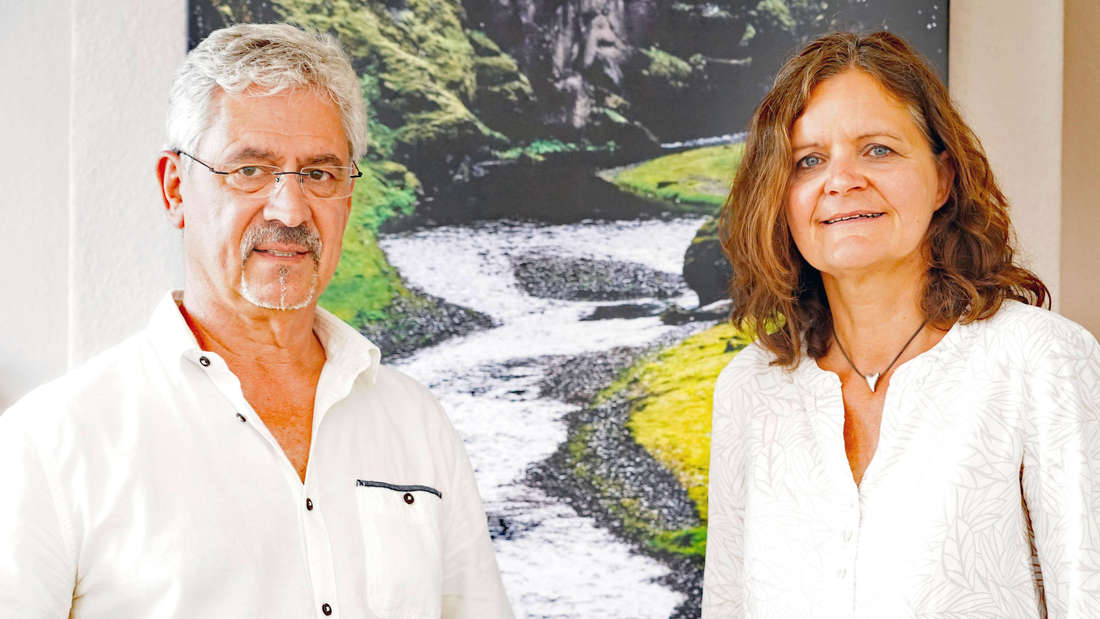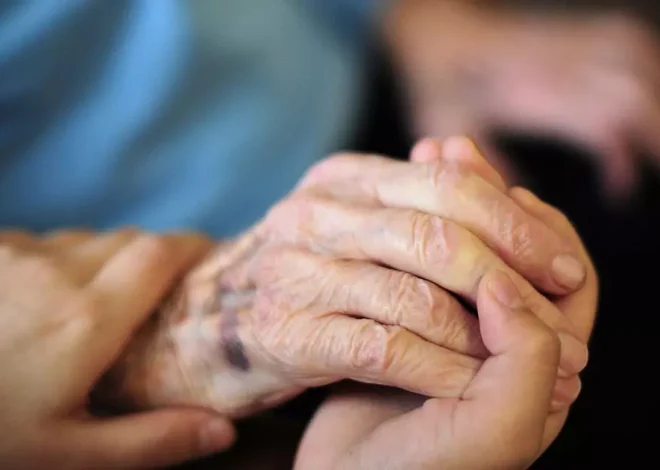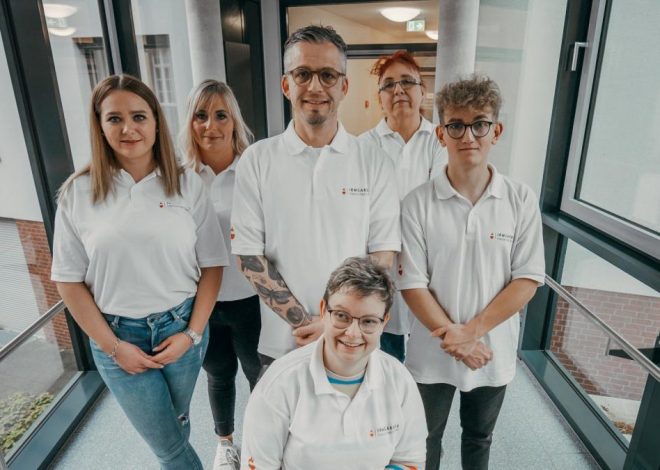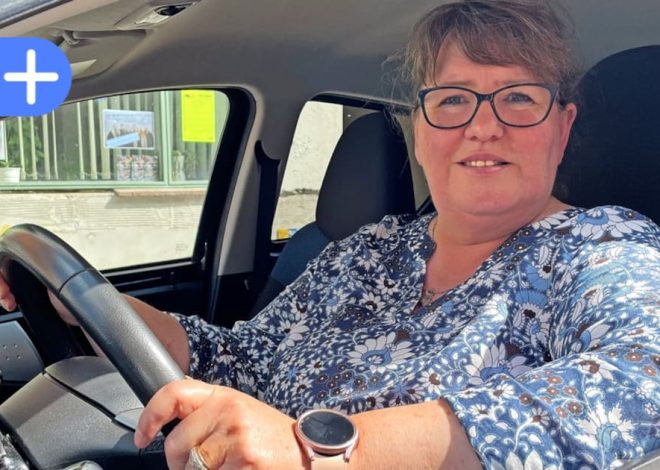
»Hospice work has a lot to do with joy«
Press

At the end of a life, it is not the material wishes that count. The volunteers of the Büdinger Land Hospice Support support the dying in this regard.
Seriously ill and dying people want to spend the last phase of their lives with dignity. It is a time when family members are also very challenged. Hospice Aid Büdinger Land has been offering voluntary help to both groups of people for 20 years. The association supports those affected at home as well as in retirement and nursing homes, but also advocates for an inpatient hospice. On the occasion of the upcoming milestone birthday, this newspaper speaks to coordinator Petra Albus and chairman Prof. Udo Stern.
Ms. Albus, what personal experiences led you to hospice work?
Albus: I worked in an intensive care unit for around 15 years. Then I wanted to change my career and took the palliative care course because I was interested in the topic. Then I worked for four years in the inpatient hospice in Nuremberg. For me, the work was the best thing you can do in nursing because you have time and can work very individually and with people in mind. You have peace and quiet to just be there, read something, cook together and spoil people. Then I completed further training to become a coordinator for hospice work. In 2017 I started here at the club as a coordinator.
Mr. Stern, how was it for you?
Stern: Through my experience in the clinic, I have seen that people with life-limiting illnesses do not have a basic need met: attention through time. And that a self-determined life is not represented at the end of life in the clinic. The discussions with patients and relatives aroused my interest in becoming active in this area. But there is also a very personal experience. My mother was diagnosed with breast cancer in 1988. I made the first suspected diagnosis, was there when she had the operation, and accompanied her until the end of her life. I saw how inadequate the care for people in the clinic is and that they focus on medical and nursing care, but that other needs are not covered there. They tend to end up with the GP in outpatient care.
Ms. Albus, have you had similar personal experiences?
Albus: I did a lot of end-of-life care in the hospital right from the start. There are a lot of nursing staff who give it a wide berth. For me it was different, so I often sat in when it was possible. At that time there was no palliative care unit. In the intensive care unit there was no room for dying. People fought for life using medical devices, and dying was not allowed.
What needs do people have at the end of life?
Stern: The desires are very reduced, for example to notice the smell of a fresh apple pie because you may no longer be able to eat it. But you want to have the feeling again of what it was like when you could eat it. Or wishing that someone would just sit by the bed again. It’s the little wishes. This is different from the most common wishes of healthy people who want a vacation, a house or a new car. In these processes, the revelation of the confession of life is often an urgent need. Things that are always taboo in life need to be shared again.
Albus: You need a neutral person who doesn’t judge, who has nothing to do with it, no one from the family. For protection or care, for example. What excited me about hospice work was that they try to make people’s lives beautiful. In the hospital, life is very much limited to lying in bed. Hospice work has a lot to do with joy and happiness. It is more all-encompassing. There is celebration, lots of laughter, dancing. A lot of humor, lightness, openness and closeness are allowed. In the hospital, distance and hygiene are the most important things. Little touching, and relatives must also always pay attention to hygiene. In a hospice, someone is constantly throwing their arms around your neck, you touch the patient without gloves and you are not always afraid of germs.
But you don’t work in a hospice.
Albus: We accompany people where they live, which can be at home, in a retirement home, nursing home or home for the disabled. We support people who are at the end of their lives. We try to give them something worth living for, to fulfill their wishes. This can be closeness, listening or very mundane things like a liverwurst sandwich, perhaps especially in a retirement home where such wishes are ignored or no one has time. The volunteers give the time and the signal: “I’m here for you.” At the same time, we support the relatives.
Stern: Just the question “What do you want?” To dare to make this change of perspective. We try to cover this with the volunteer hospice helpers.
To what extent do you support your relatives?
Albus: They often have a great need to talk and we give them the opportunity to take a break. We had a woman who was caring for her husband and just wanted to go out into the garden for an hour and switch off completely. Or do yoga or drink coffee for two hours. Sometimes there are two volunteers there. We also have married couples: one is with the seriously ill person and the other with the spouse and that is usually a very nice experience for the family. We also give advice on everything there is, from the diagnosis that you have a relative who may be dying.
Are you still there for people when their relative has died?
Albus: Yes, through grief and individual discussions, a closed grief group and the grief café. And we would like to initiate a bench with the inscription “Consolation and Mourning Bench” at the Kernstadt Cemetery. By sitting down, people signal: “I’m looking for a conversation, you can sit with me and talk to me or remain silent together.” There will also be certain times when volunteer grief counselors are there. Our wish is that it is accepted.
What other offers do you make?
Stern: We also organize last aid courses. It’s about providing help and explanations at the end of life and answering open questions about dealing with dying and death. Like what it means when someone has difficulty breathing. That these symptoms can be attributed and it is part of the dying process.
Albus: Very old people also come. People who want to know what awaits them at the end of their lives.
They are fighting for an inpatient hospice. What is the current situation?
Stern: In our view, the structure of an inpatient hospice is clearly defined. The Büdinger Land Hospice Aid is interested in a local location. And we think it is just as important that a hospice should also be considered in the western district, which is also not optimally cared for. The need in the Wetterau district is extremely great. We need to act much more vigorously in the inpatient care sector, but we also have ideas about what this should look like. We would like a small facility with eight to ten beds for Büdingen, but also two to four outpatient day places. To relieve the burden on relatives when someone is working during the day. There is certainly still a need for a similar project at the other end of the Wetterau district.
Do you have an appeal to political actors?
Stern: Our appeal must be to carry out another intensive site review. Something that we can and must bring into the balance: In recent years we have set up two foundations that would also directly support an inpatient hospice financially. In return, people have transferred part of their assets to the association, with the clear mandate to invest it in local hospice work. We have land. The old military government, for example. A hospice instead of a parking lot, that would be a nice alternative.
The Büdinger Land Hospice is celebrating its 20th anniversary in June. To mark the occasion, a caricature exhibition entitled “Dying, Death and Mourning” is planned from Sunday, June 9th to Thursday, June 27th (Monday to Friday from 11:30 a.m. to 4 p.m., Sunday from 1 p.m. to 6 p.m.). The anniversary celebration is scheduled for Sunday, June 16th, from 3 p.m. The event will take place in the stables at Obergasse 23d in Büdingen (Oberhof Cultural Center). Please register by Saturday, June 1st. The event is free of charge. You can contact the association by phone on 01 51/10 70 32 68 or by email at [email protected].
Petra Albus (53) is a qualified nurse and intensive care nurse. She also completed training in palliative care and worked for four years in an inpatient hospice in Nuremberg. For four years she has been the full-time coordinator for the Büdinger Land Hospice Aid. Prof. Udo Stern (62) studied psychosocial counseling, social law, and works as a naturopath. He runs a naturopathy practice in Büdingen. At the Diploma University of Kassel, he is the dean of studies for the naturopathy and complementary healing methods and complementary pain therapy courses. Stern recently replaced Andreas Marschella as chairman of the Büdinger Land Hospice Aid.

Ethel Purdy – Medical Blogger & Pharmacist
Bridging the world of wellness and science, Ethel Purdy is a professional voice in healthcare with a passion for sharing knowledge. At 36, she stands at the confluence of medical expertise and the written word, holding a pharmacy degree acquired under the rigorous education systems of Germany and Estonia.
Her pursuit of medicine was fueled by a desire to understand the intricacies of human health and to contribute to the community’s understanding of it. Transitioning seamlessly into the realm of blogging, Ethel has found a platform to demystify complex medical concepts for the everyday reader.
Ethel’s commitment to the world of medicine extends beyond her professional life into a personal commitment to health and wellness. Her hobbies reflect this dedication, often involving research on the latest medical advances, participating in wellness communities, and exploring the vast and varied dimensions of health.
Join Ethel as she distills her pharmaceutical knowledge into accessible wisdom, fostering an environment where science meets lifestyle and everyone is invited to learn. Whether you’re looking for insights into the latest health trends or trustworthy medical advice, Ethel’s blog is your gateway to the nexus of healthcare and daily living.



